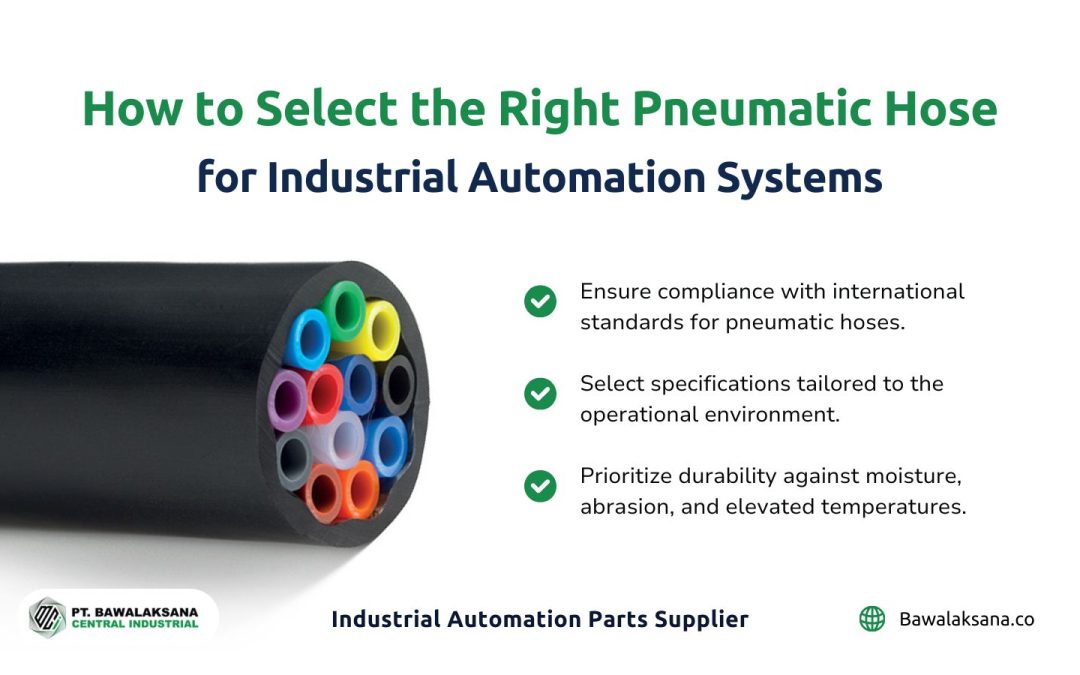Manufacturing is a company that transforms raw materials into ready-to-sell products by involving machines, human labor, tools and complex processing.
The 7 most essential characteristics of manufacturing companies are as follows:
- Production Process: Transforming raw materials into finished goods ready for sale.
- Inventory Management: Manufacturing manages two inventories, raw materials that will be processed into products and finished goods that are ready to be sold and distributed to customers.
- Mass Production: Manufacturing creates products on a large scale, making them more competitively priced.
- Quality Control: Manufacturers adopt various methods to improve production efficiency and quality.
- Supply Chain: Manufacturing productivity cannot be separated from the supply chain and it is vital for productivity on the factory floor.
- Business Process: Manufacturing has complex business processes, ranging from procurement, marketing, to administration.
- Industrial Automation Systems: Automation systems are becoming very important in manufacturing to complete repetitive tasks, minimize errors and dangerous work.
In this article, the Bawalaksana.id team will explain in full regarding 7 vital characteristics in manufacturing and their understanding according to experts.
Manufacturing’s Contribution to Indonesia’s Economy
The manufacturing sector plays an important role in the world economy, including Indonesia. With manufacturing, raw materials can be processed into finished products so that they have a high selling value, such as:
- Consumer goods
- Electronic products
- Home appliance
- Medicines
- Automotive
- and others
In fact, manufacturing is the largest contributor to Indonesia’s Gross Domestic Product (GDP), reaching 18.98% in 2024. If traced deeper, the manufacturing sector that provides the largest contribution is from the Chemical Industry. With a growth value of up to IDR 339.18 trillion by the end of 2021, as reported by Business Indonesia.
The magnitude of manufacturing’s influence on the national economy makes us feel the need to know what manufacturing is according to experts and what its characteristics are as follows.
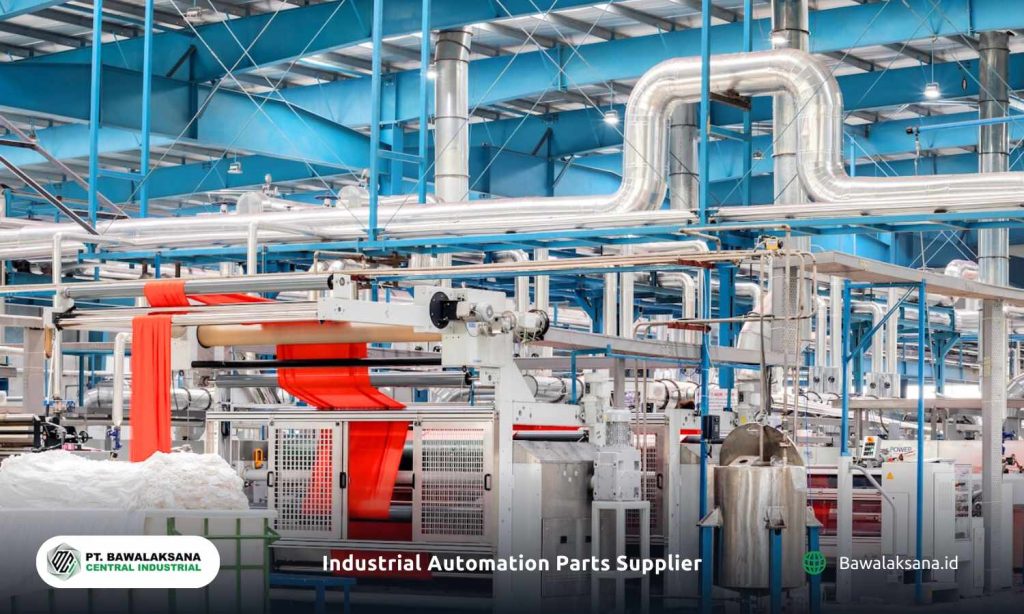
Most Essential Characteristics of Manufacturing Companies
Manufacturing has specific characteristics that distinguish it from other companies, such as trading and service companies. The following are some of the most essential characteristics of manufacturing companies that are worth knowing:
1. Production Process
The main characteristic of a manufacturing company can be seen from its production process in converting raw materials into finished goods. This process can consist of processing, assembly, and packing.
The production process in manufacturing will involve many aspects, such as automation systems, modern technology, and a professional and skilled workforce. That way the products produced by manufacturing are not only of high quality, but also consistent and fast-paced.
However, investment in manufacturing is much more expensive compared to conventional companies in general.
2. Inventory Management
The next characteristic of manufacturing companies is related to inventory management. Manufacturers need to manage two main types of inventory, namely:
- Raw materials to be processed into products
- Finished goods ready for sale and distribution to customers
Efficient inventory management is essential for manufacturers to maintain a smooth production process, minimize costs and effective product distribution.
Given that inventory management is a vital part of manufacturing, it is therefore necessary to implement Manufacturing Execution Systems (MES) to track and document the transformation of raw materials into finished goods.
By using Manufacturing Execution Systems, manufacturers can determine production costs more accurately and in real-time. This can include labor costs, waste, downtime, tooling costs and other costs that occur directly on the factory floor.
3. Mass Production
Mass production is one of the most synonymous characteristics of manufacturing companies. The purpose of this is to utilize economies of scale, so that manufacturers can reduce per unit costs and will make product prices more competitive.
Mass production in manufacturing can be improved by implementing automation systems to increase efficiency and productivity. Through the implementation of automation systems, manufacturing products can be made quickly and consistently.
4. Quality Control and Standardization
Although manufacturing is very much synonymous with mass production processes to gain economies of scale, it is also responsible for quality control.
Manufacturing companies need to ensure that the products they produce can meet the set quality standards, so that they can satisfy customers and comply with regulations.
Therefore, manufacturers also need to implement Quality Management Systems (QMS) or Six Sigma. These two things will become a system that can help manufacturers to improve production efficiency, minimize production defects, increase customer satisfaction and business profits significantly.
In practice, QMS implementation often refers to International Standards such as ISO 9001:2015.
Six Sigma (6σ) is a quality management methodology that aims to reduce production defects and improve customer satisfaction. This commitment is defined as no more than 3.4 defects per million opportunities.
When a manufacturer has implemented the Six Sigma method in its production process, it means that the company can guarantee that the production efficiency level reaches up to 99.99966%.
5. Dependence on Supply Chain
There is no doubt that manufacturing companies are dependent on the supply chain.
Manufacturers often face the problem of uncertainty in the supply chain due to various things such as:
- Raw material price fluctuations
- Trade policy changes
- Natural disasters
- Geopolitics
Some of these issues may cause disruptions in the supply of raw materials, key components or delays in the production process. In fact, the most critical issue due to supply chain disruption is the loss of loyal customers.
6. Business process
As a sector that transforms raw materials into ready-to-sell products, manufacturing has complex business processes such as the following:
Procurement
In order for manufacturing to operate sustainably, a procurement process is required in relation to the procurement of goods and operational needs. This includes but is not limited to the points below:
- Raw materials that will be processed into finished and ready-to-sell products.
- Spare parts of automation devices, working and maintenance equipment.
- Medical equipment and safety equipment.
- Equipment for daily operations and support for manufacturing sustainability such as office equipment, cleaning tools, carpentry tools and so on.
Sales and Marketing
Sales and marketing is an important business process for manufacturers, so that companies can achieve profits.
Manufacturers need to have a dedicated team of experts working in this area to plan a precise and accurate strategy. That way every product produced in large quantities can be sold out and well distributed throughout the supplier network.
Company Administration
Administration is one of the business processes that should not be ignored in manufacturing. This part will play an important role so that the manufacturing process can run properly and sustainably.
Administration can carry out its function to determine policies on the factory floor, accounting, employee management, insurance and so on.
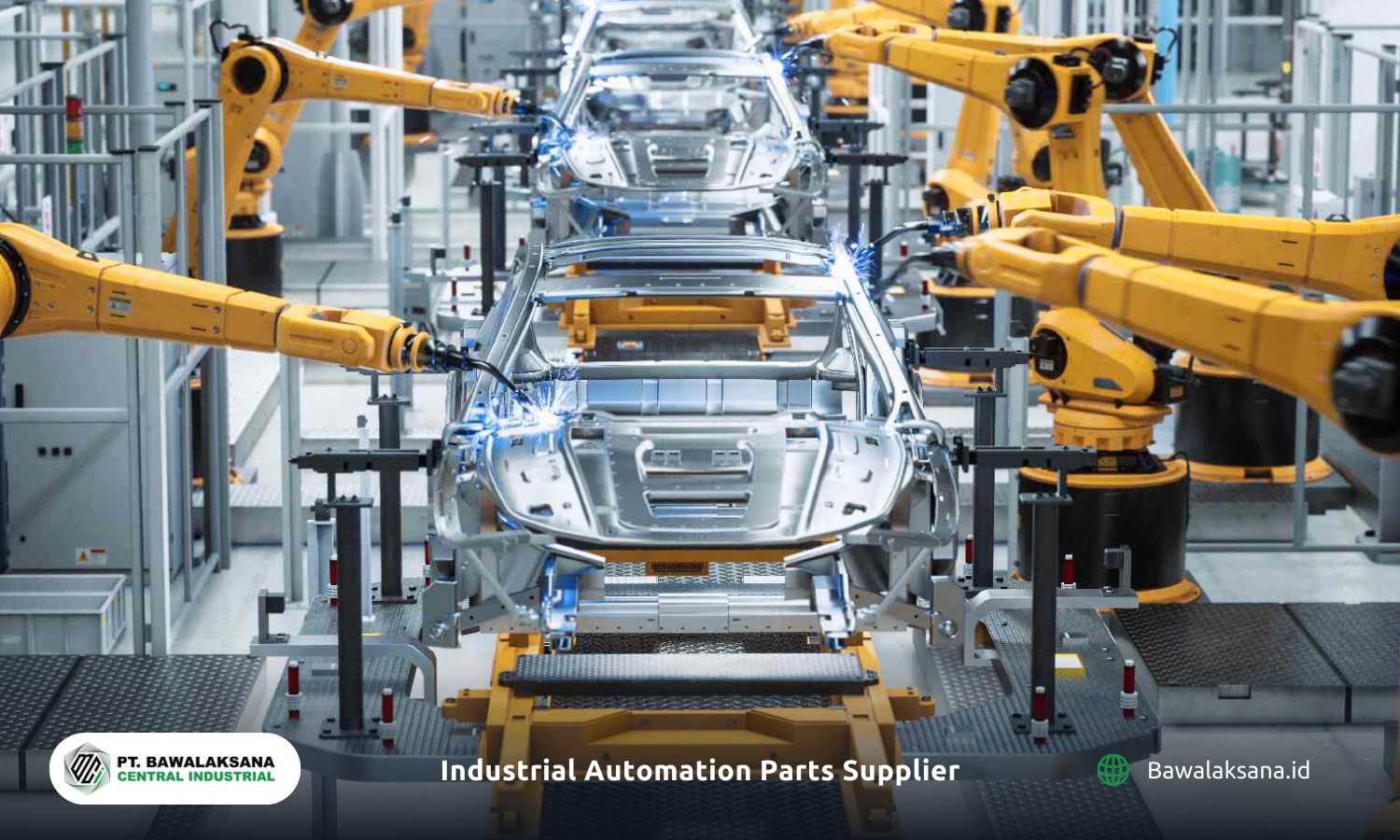
7. Use of industrial automation systems
The last characteristic of manufacturing companies is the use of industrial automation systems or Industrial Automation. This component is vital for modern manufacturing, to run production processes quickly, en masse and consistently.
Industrial automation systems can refer to the use of computerized control systems with robots and information technology, to manage various processes and machines.
Automation systems are becoming very important in manufacturing to complete repetitive tasks, minimize errors and dangerous work. By implementing an industrial automation system, manufacturing companies can mass-produce products with consistent results.
These are the 7 most common characteristics of a manufacturing company and also what distinguishes it from other types of companies, such as trading or service companies.
At the same time, each of the manufacturing characteristics we have mentioned above will contribute to the success and sustainability of manufacturing.
In the modern Industry 4.0 era, manufacturing companies must be able to adapt to improve efficiency, innovation and competitiveness in the global market.
That way manufacturing can really be a trigger in the growth of the domestic economy. Through its role in shifting the trade of raw materials (Commodity Based) to trade in finished products that have a high selling value.

What do experts think about manufacturing companies?
In general, the definition of a manufacturing company is to convert raw materials into ready-to-sell products by involving machines, human labor, tools and complex processing.
The following are opinions and definitions from experts related to manufacturing companies:
Definition according to Britannica
According to Britannica, a manufacturing company is an industry that makes products from raw materials using manual labor or machines (automation system, ed) which is usually done systematically with a division of labor.
Definition according to the Cambridge dictionary
According to the Cambridge Dictionary, manufacturing is producing goods in large quantities, usually in a factory using machines.
Definition according to Sukmawati Sukamulja
Quoted from the book “Corporate Financial Management” by Sukmawati Sukamulja, the manufacturing industry is a sector that converts raw materials into finished goods that have selling value and can be used by customers.
Definition according to expert Christian Herdinata
According to Christian Herdinata in his book “Financial Literacy Applications for Business People”, a manufacturing company is a type of business that uses equipment, machinery and labor to convert raw materials into finished products that can be sold.
Some Frequently Asked Questions About Manufacturing
The following are some frequently asked questions related to manufacturing companies:
Is Garment Manufacturing?
The garment or textile industry falls under the manufacturing category as it transforms raw cotton, linen and wool into yarn, fabric and even finished products in the form of clothing.
What is the Largest Manufacturing Industry?
One example of the largest manufacturing industry in the world is the electrical equipment company General Electric from the United States. The company is also active in areas such as aviation, renewable energy, finance, digital and healthcare.
Does Animal Husbandry Include Manufacturing?
Livestock farming is not considered manufacturing because it involves processes that are different from those of a typical manufacturing company.
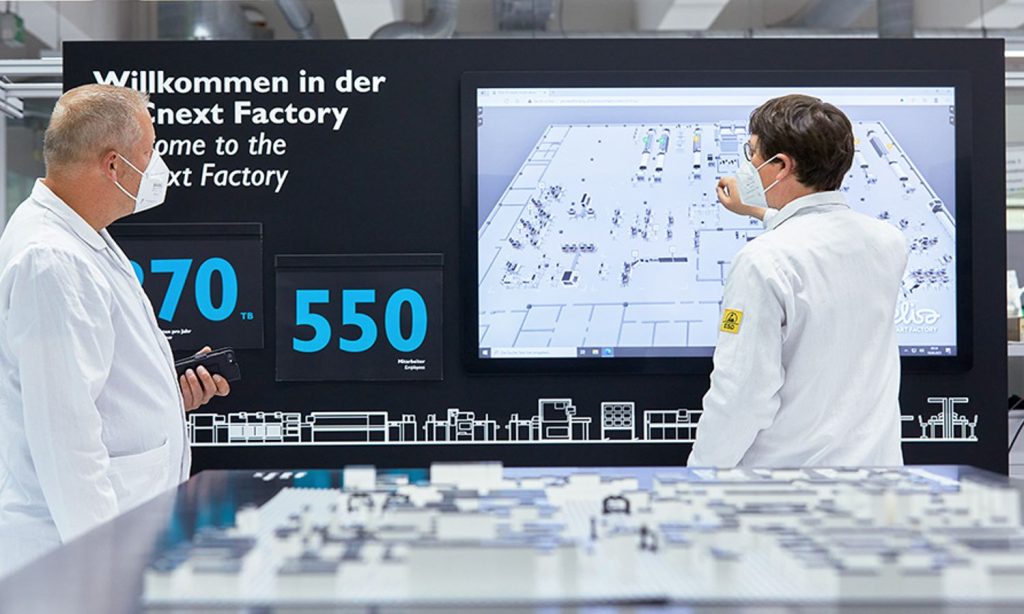
Manufacturing Transformation to Spur Domestic Economic Growth
The Manufacturing sector plays a key role and is the main engine of growth in the domestic economy. This is a positive impact of Indonesia’s transformation from commodity-based to manufacture-based.
As a result, manufacturing can make the largest contribution to Indonesia’s GDP, reaching 16.30% in Q2 of 2023. This shift can significantly have far-reaching economic ripple effects for reasons such as the following:
Commodity Based
- At this stage, the country’s economy relies heavily on the export of raw natural commodities, such as agricultural products, minerals and mining materials.
- Limited value-added is generated as commodities are exported without significant processing.
- The labor involved tends to be less.
Manufacture Based
- A manufacturing-based country has a strong and diverse industrial sector.
- The manufacturing industry processes raw materials into finished products with higher added value.
- In terms of added value, manufactured products have a higher economic value than raw natural commodities.
- The existence of manufacturing can absorb a lot of labor.
- Manufactured products can be exported to improve the trade balance, through industrial downstreaming.
In our article on The Role of Manufacturing in the Indonesian Economy, it was mentioned that downstreaming has a significant positive impact on the trade balance.
It is characterized by manufactured products that continue to dominate national export achievements. For 43 consecutive months there was an increase in surplus reaching Rp. 37.9 trillion by November 2023.
Also reported by Bisnis.com, that in 2018, Indonesia has been declared the largest manufacturing base for the ASEAN region.
Recognizing the large contribution of manufacturing to domestic economic growth, it is important to keep abreast of these developments.
As millennials who are ready to welcome the Industry 4.0 era, implementing automation systems in manufacturing is a big goal worth striving for.
PT. Bawalaksana Central Industrial as part of the industrial and manufacturing space, strongly supports these ideals. Therefore, we as a provider of Industrial Automation Solutions and System Integration have a good capacity to take part in realizing the implementation.
We are your partner to realize a dynamic, productive and cost effective modern industry.
Please contact us if you want to involve us in the implementation of industrial automation systems in your company.

Romanta Pinrih Linuwih
Pneumatic Automation Systems Expert
This article was written in collaboration with Romanta Pinrih Linuwih, an expert in Pneumatic Automation Systems, to ensure accuracy and high quality insights.
REFERENCES
Sukamulja, Sukmawati, 2021. Corporate financial management: theory, analysis and application, Yogyakarta: Andi
Herdinata, Christian, 2020. Application of Financial Literacy for Business Actors, Yogyakarta: Deep Publish Publisher
Manufacturing | Definition, Types, & Facts. (2024, February 4). Britannica. Retrieved February 16, 2024, from https://www.britannica.com/technology/manufacturing
Definition and Characteristics of Manufacturing Companies. Retrieved February 19, 2024, from https://tirto.id/pengertian-dan-karakteristik-perusahaan-manufaktur-gNF6
Meaning of manufacture in English. Retrieved February 21, 2024 from https://dictionary.cambridge.org/dictionary/english/manufacture
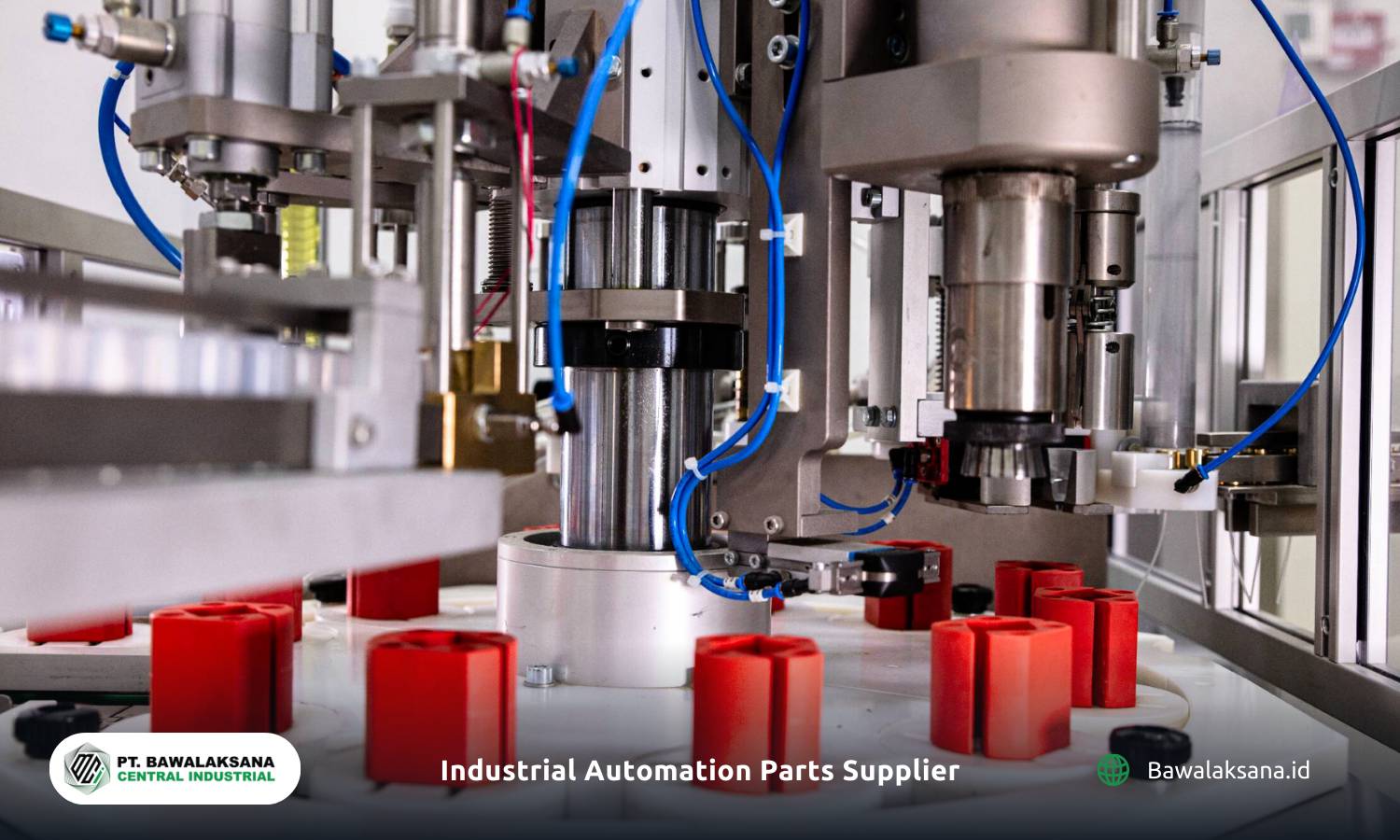
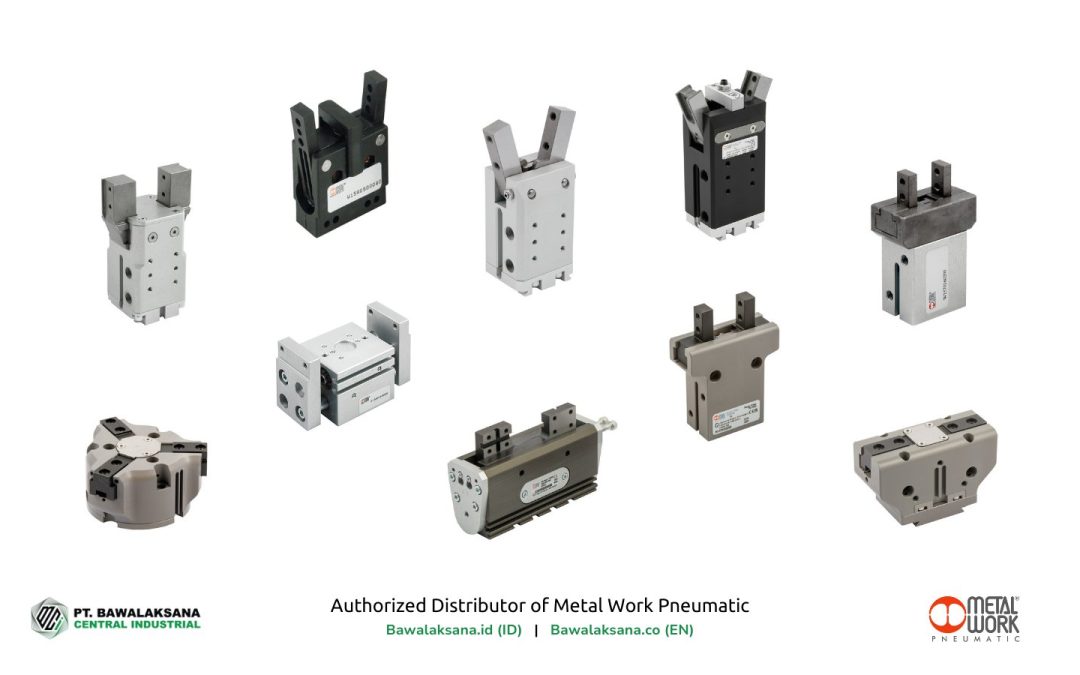

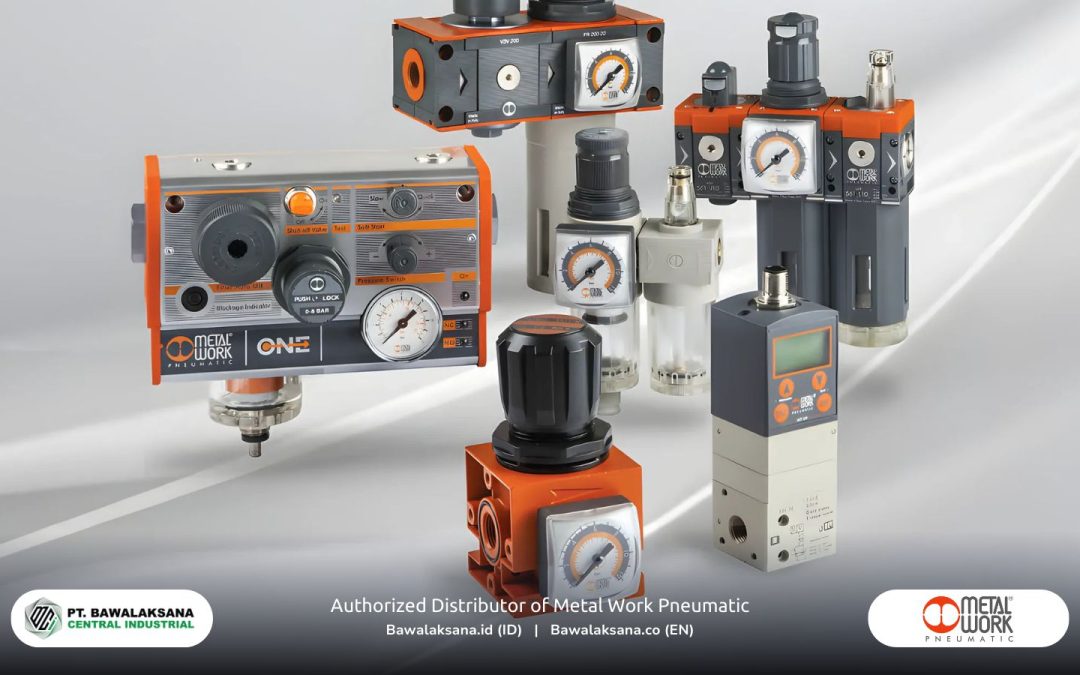
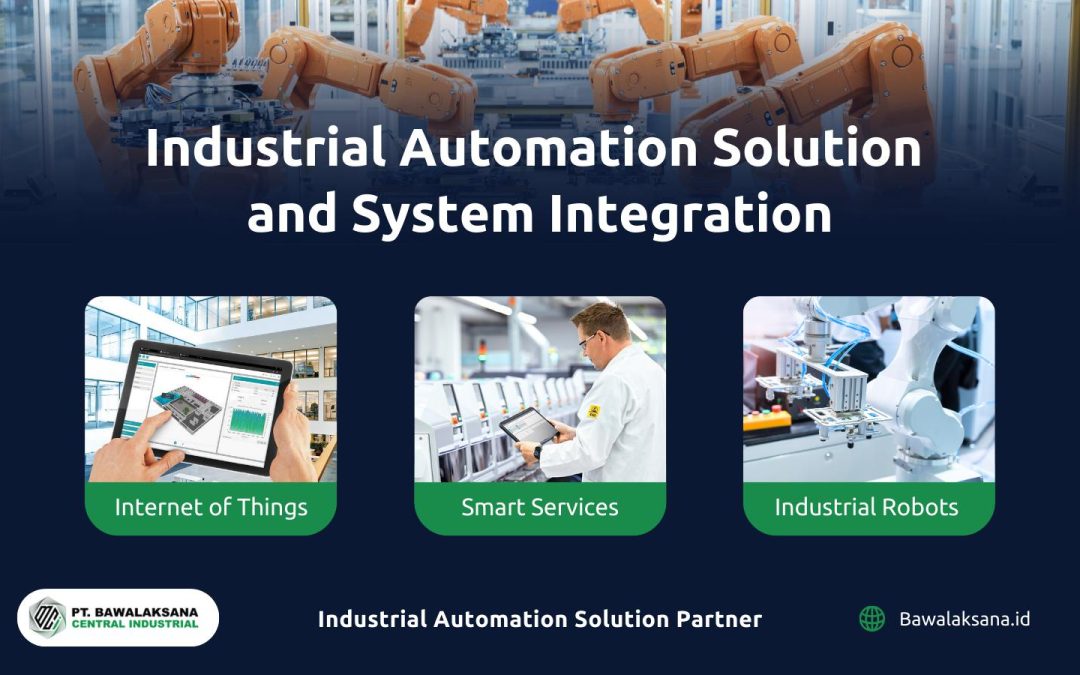


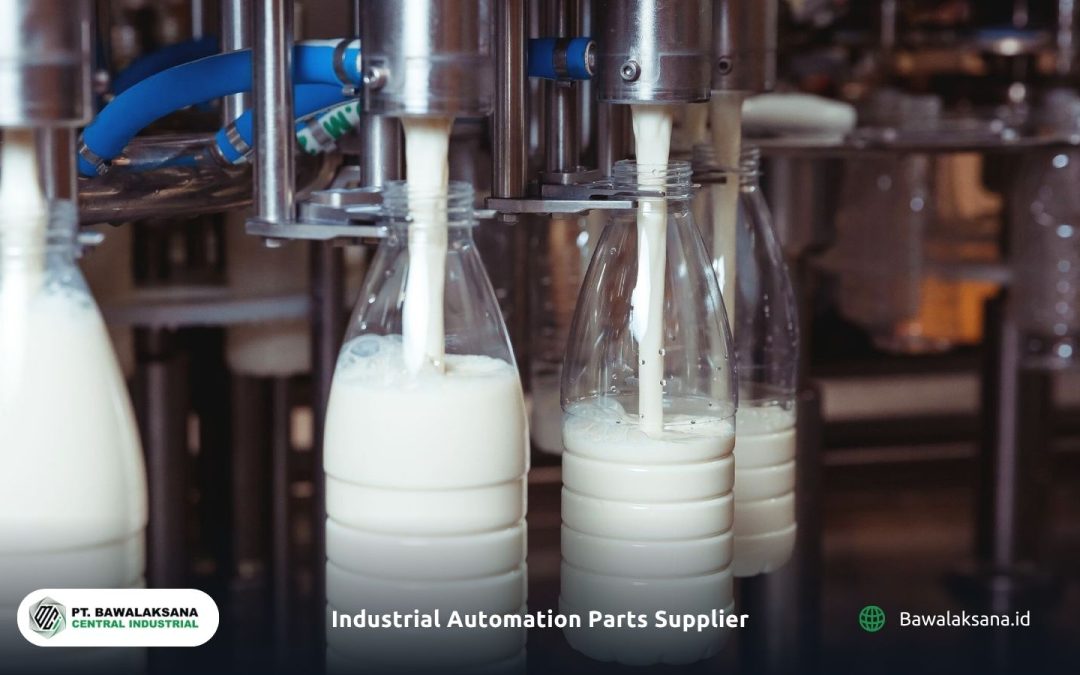
![10+ Examples of Pneumatic Tools in Daily Life and Industry [2025]](https://bawalaksana.co/wp-content/uploads/2025/05/Sandblasting-large-diameter-pipes-to-remove-surface-contaminants-1080x675.jpg)
